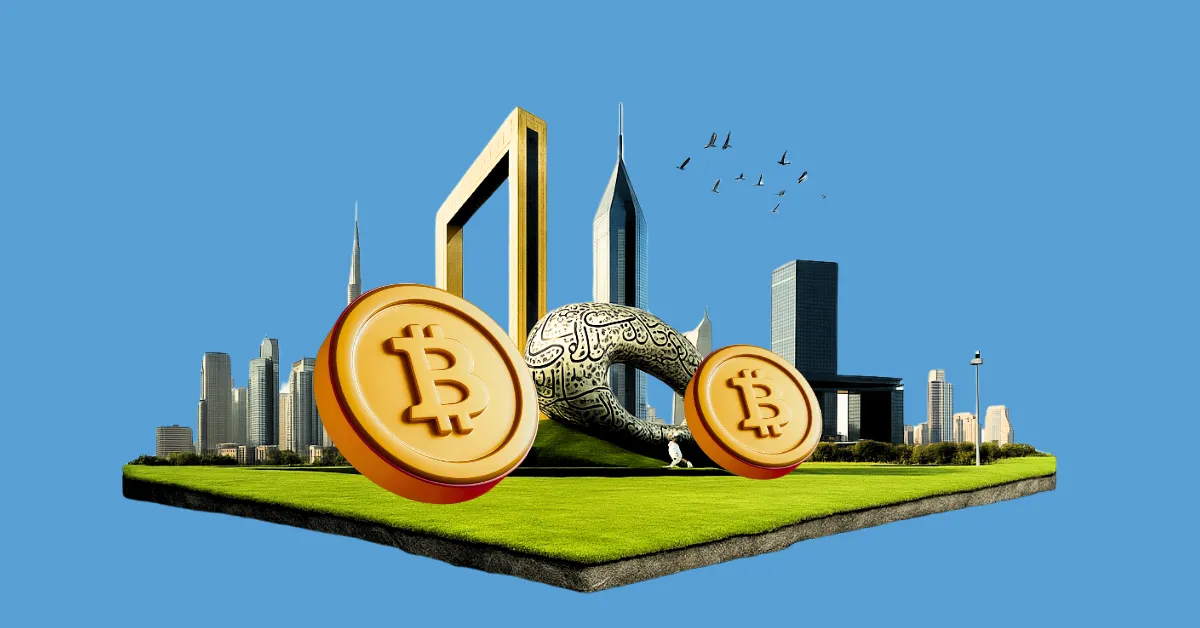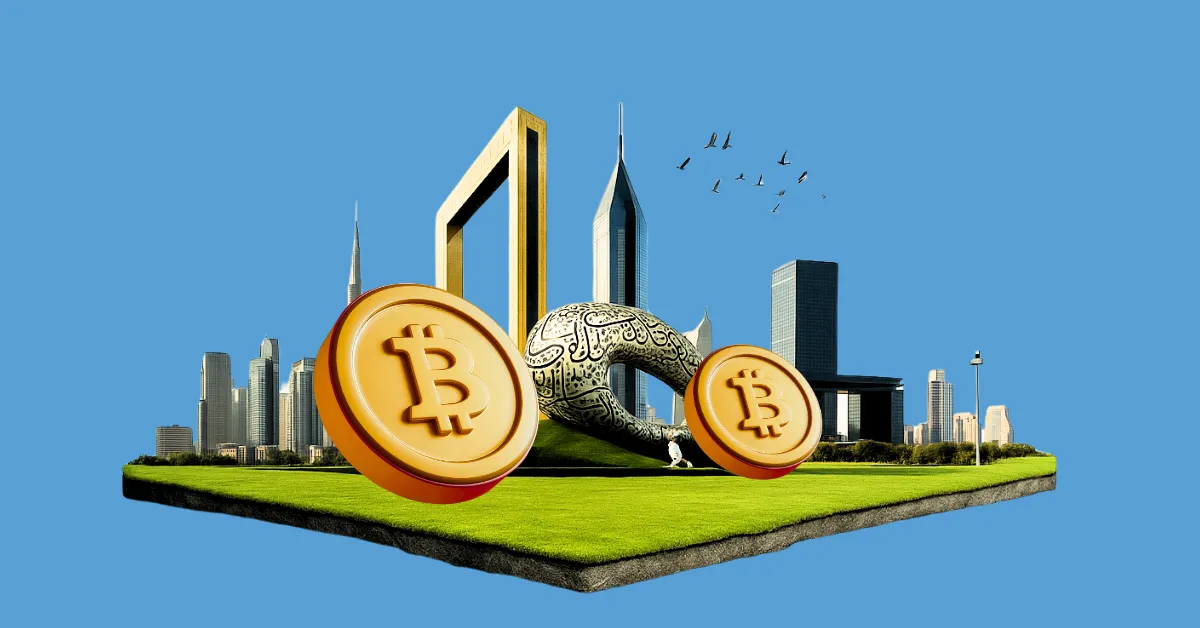The relentless hum of Bitcoin mining rigs, once confined to the icy expanses of North America and the industrial heartlands of Europe, is now echoing in the shimmering heat of Dubai. Hut 8, a prominent Bitcoin mining firm with well-publicized ties to the Trump family, has officially set up shop in the heart of this desert metropolis, signaling a bold new chapter in its global strategy. This move isn’t just a geographical expansion; it’s a calculated play for capital efficiency, regulatory arbitrage, and a foothold in a region rapidly emerging as a global crypto hub. As Western nations grapple with increasing regulatory scrutiny and energy costs, Dubai’s embrace of digital assets is proving irresistible to companies seeking a more hospitable environment for their operations. The timing of this expansion, coupled with a substantial $220 million funding injection, paints a compelling picture of a company poised for aggressive growth in a rapidly evolving landscape. But what exactly is driving this strategic shift, and what does it mean for the future of Bitcoin mining?
Dubai’s allure to crypto firms like Hut 8 isn’t accidental. The city has been actively cultivating a business-friendly environment for digital assets, offering a unique blend of factors that are proving increasingly attractive.
Tax Advantages
Perhaps the most significant draw is Dubai’s relaxed tax policies. The absence of corporate taxes provides a substantial financial advantage for Bitcoin miners, allowing them to reinvest profits and scale their operations more efficiently. This stands in stark contrast to many Western countries where crypto firms face hefty tax burdens. For instance, in the United States, corporate tax rates can reach up to 21%, while in Europe, rates vary but can be as high as 30% in some countries. Dubai’s zero corporate tax policy is a game-changer for companies like Hut 8, enabling them to allocate more resources towards expansion and innovation.
Regulatory Clarity
While some regions struggle with ambiguous or restrictive crypto regulations, Dubai is actively working to provide a clear and supportive regulatory framework. The Dubai International Financial Centre (DIFC) has emerged as a leading jurisdiction for crypto businesses, offering a predictable legal environment that fosters innovation and investment. This clarity is crucial for companies operating in a sector that is often subject to sudden regulatory shifts. For example, the DIFC has established clear guidelines for crypto trading, initial coin offerings (ICOs), and digital asset custody, providing a stable foundation for businesses to operate.
Strategic Location
Dubai’s geographical location at the crossroads of Europe, Asia, and Africa makes it an ideal hub for global operations. Its world-class infrastructure, including its airport and port facilities, facilitates the seamless movement of capital and resources. This strategic positioning allows companies like Hut 8 to easily access markets in the Middle East, Africa, and Asia, which are increasingly becoming significant players in the global crypto economy. Additionally, Dubai’s advanced logistics and transportation networks ensure that mining equipment and other essential resources can be quickly and efficiently transported, reducing operational delays.
Energy Resources
While Dubai itself may not be known for cheap energy, the broader UAE region possesses substantial oil and gas reserves. Although Bitcoin mining is increasingly focused on renewable energy sources, access to affordable power remains a critical factor in determining profitability. The UAE has been investing heavily in renewable energy projects, such as the Mohammed bin Rashid Al Maktoum Solar Park, which is one of the largest single-site solar parks in the world. This focus on renewable energy aligns with the global trend towards sustainable mining practices, making Dubai an attractive location for eco-conscious crypto firms.
Hut 8’s expansion into Dubai suggests a broader strategic vision that extends beyond simply validating transactions.
Trading and Accumulation
The company’s Dubai office will focus on Bitcoin trading and accumulation of digital assets. This indicates a shift towards becoming a more diversified crypto player, actively participating in the market beyond mining. By leveraging Dubai’s favorable tax policies, Hut 8 can potentially maximize its profits from trading activities. For example, the absence of capital gains taxes in Dubai allows the company to reinvest its trading profits without incurring additional financial burdens. This strategic pivot enables Hut 8 to capitalize on market fluctuations and build a more robust financial portfolio.
Capital Efficiency
The move to Dubai is fundamentally about improving capital efficiency. By reducing its tax burden and accessing potentially lower energy costs, Hut 8 can free up resources to invest in expanding its mining infrastructure and acquiring more Bitcoin. This efficiency is crucial in an industry where profit margins can be thin, and operational costs can significantly impact overall profitability. For instance, the reduction in tax expenses can be reinvested in acquiring more advanced mining rigs, which can increase the company’s hashrate and overall mining efficiency.
Global Expansion
Dubai serves as a strategic springboard for further global expansion. From its base in the UAE, Hut 8 can explore opportunities in other emerging markets and solidify its position as a leading player in the international Bitcoin mining arena. The UAE’s strong diplomatic and economic ties with countries in Africa, Asia, and the Middle East provide Hut 8 with a unique advantage in entering these markets. Additionally, Dubai’s status as a global financial hub attracts a diverse range of investors and partners, further enhancing Hut 8’s ability to expand its operations and influence.
Regulatory Arbitrage
While not explicitly stated, Hut 8’s move also allows it to take advantage of regulatory arbitrage. By operating in a jurisdiction with more lenient regulations, the company can avoid some of the compliance costs and restrictions imposed in Western countries. For example, the regulatory environment in the United States and Europe can be complex and burdensome, with stringent requirements for anti-money laundering (AML) and know-your-customer (KYC) procedures. Dubai’s more streamlined regulatory framework enables Hut 8 to operate more efficiently and focus on its core business activities.
Hut 8’s ties to the Trump family, specifically Donald Trump Jr. and Eric Trump, add another layer of complexity to its Dubai expansion. While the exact nature of this connection remains somewhat opaque, it raises several questions.
Political Implications
Will the association with the Trump family attract additional scrutiny from regulators and the media? Dubai’s government may also face some negative attention. The Trump family’s political connections and controversial reputation could potentially draw unwanted attention to Hut 8’s operations in Dubai. For instance, the U.S. government’s stance on cryptocurrency and its relationship with the UAE could influence how Hut 8’s expansion is perceived and regulated.
Geopolitical Considerations
The Trump administration’s relationship with the UAE was often complex. Will these existing relationships play a role in Hut 8’s operation in Dubai? The geopolitical dynamics between the U.S. and the UAE could impact Hut 8’s operations, particularly in terms of regulatory oversight and international trade. For example, any shifts in U.S. foreign policy towards the Middle East could have implications for Hut 8’s business activities in the region.
Brand Perception
Does the Trump connection enhance or detract from Hut 8’s brand image? This depends on the target audience. The existing associations could be viewed as an advantage or liability depending on the consumer base and market. For instance, some investors and customers may view the Trump connection as a sign of political influence and stability, while others may see it as a potential risk factor. The brand perception will ultimately depend on how Hut 8 manages its public relations and communicates its strategic vision to stakeholders.
The $220 million funding injection that accompanied Hut 8’s Dubai expansion is a clear signal of the company’s ambitious growth plans. This capital will likely be used for several key initiatives.
Expanding Mining Capacity
A significant portion of the funds will be used to acquire new Bitcoin mining equipment and expand existing facilities. This will allow Hut 8 to increase its hashrate and generate more Bitcoin. For example, the company can invest in state-of-the-art mining rigs that offer higher efficiency and lower energy consumption, enhancing its competitive edge in the market.
Acquiring Bitcoin
Some of the capital will be allocated to purchasing Bitcoin directly. This strategy allows Hut 8 to build up its Bitcoin reserves and benefit from potential price appreciation. By holding Bitcoin as an asset, the company can hedge against market volatility and potentially realize significant gains if the price of Bitcoin rises. This approach aligns with the company’s long-term strategy of accumulating digital assets and participating in the broader crypto ecosystem.
Investing in Infrastructure
Hut 8 will likely invest in upgrading its infrastructure, including its data centers and energy infrastructure. This will improve the efficiency and reliability of its operations. For instance, investing in advanced cooling systems and renewable energy sources can reduce operational costs and enhance the sustainability of mining activities. Additionally, upgrading data centers can improve the security and performance of mining operations, ensuring uninterrupted and efficient mining activities.
Research and Development
A portion of the funds may be dedicated to research and development, exploring new mining technologies and strategies. This investment can drive innovation and help Hut 8 stay ahead of the curve in the rapidly evolving crypto mining industry. For example, the company can invest in developing more energy-efficient mining algorithms or exploring new consensus mechanisms that could revolutionize the mining process.
The emergence of American Bitcoin, a company reportedly absorbing Hut 8’s mining operations in Texas, New York, and Alberta, adds another dimension to the narrative. While the precise relationship between Hut 8 and American Bitcoin remains somewhat unclear, here are some possible explanations.
Restructuring
The move may be part of a broader corporate restructuring, with American Bitcoin focusing on mining operations while Hut 8 concentrates on trading and global expansion. This restructuring could allow Hut 8 to streamline its operations and focus on its core competencies, while American Bitcoin can specialize in mining activities. This division of labor can enhance efficiency and enable both companies to achieve their strategic objectives more effectively.
Public Listing
American Bitcoin’s plans to go public suggest that it may be seeking to raise additional capital and expand its mining operations independently. By going public, American Bitcoin can access a broader range of investors and financial resources, enabling it to scale its operations and compete more effectively in the global mining market. This move could also provide Hut 8 with additional financial flexibility and strategic options.
Strategic Partnership
Hut 8 and American Bitcoin may be collaborating on certain projects, with each company focusing on its respective areas of expertise. This collaboration can leverage the strengths of both companies and create synergies that drive growth and innovation. For example, Hut 8 can provide strategic guidance and market insights, while American Bitcoin can focus on operational excellence and mining efficiency.
Hut 8’s expansion into Dubai represents a significant shift in the landscape of Bitcoin mining. The company is not simply relocating its operations; it is strategically positioning itself to capitalize on the opportunities presented by Dubai’s burgeoning crypto ecosystem. By leveraging favorable tax policies, accessing new capital, and diversifying its business model, Hut 8 is laying the foundation for long-term growth and success. The move also highlights the growing importance of regulatory arbitrage in the crypto industry, as companies seek out jurisdictions with more supportive environments. As Bitcoin mining continues to evolve, Hut 8’s bold move into the golden sands of Dubai may well serve as a blueprint for other companies seeking to thrive in this dynamic and ever-changing landscape. But as they navigate these shifting sands, they must also be mindful of the ever-present shadows, like those cast by political affiliations and geopolitical considerations. The future of Bitcoin mining may be written in the desert, but it will be shaped by forces far beyond the horizon.












